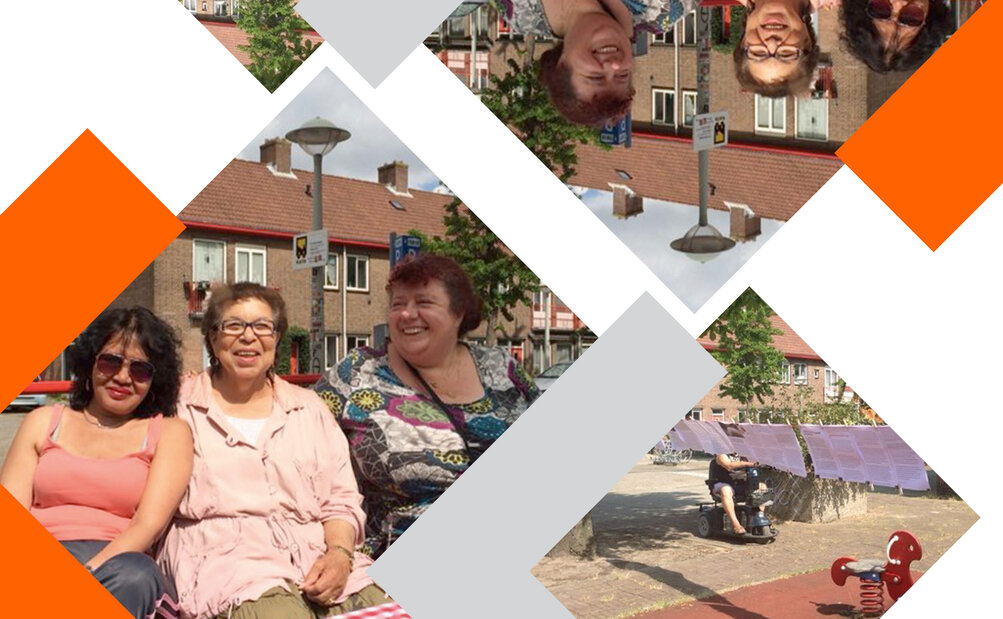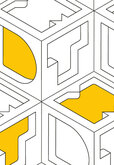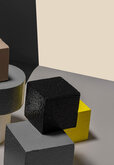-
Heb je nog geen vragen, maar wel interesse in Overheid in transitie?
Samen vernieuwen.
In the face of fast moving, global, often elusive developments, national governments and their counterparts (public sector) find it eminently challenging to innovate policies and public services to answer pressing societal needs. Vice versa, how do we re-engage with the state as citizens? To arrive in a new, more inclusive relationship between citizens and the state, with new practices and better outcomes on the ground, we believe that we need to start in practice, with people and their stories. What do they aspire to in life? What enables them to thrive and to what extent are they willing and able to contribute to society?
One method that gives shape to this question is a social innovation lab (sometimes also referred to as public sector innovation lab, hereafter referred to as a social lab). Social labs are hailed, even hyped, worldwide as vehicles for transforming the way our cities, our schools, our energy supply chains and welfare programs run. But how to run a lab? What to do when problems arise? Facilitating a social lab successfully means becomi“What I found so special about the lab was the fact that we were all part of a learning process. There was no expert; we were all partners. That really made it a valuable practice.” – Local government official, team member Amsteldorpng extremely competent in managing the frictions that arise while trying to innovate within existing conditions. It means learning, trying, failing and improving. Despite its promising narrative, the realm of lab practitioners is sparse of critical thought and struggles to find learning spaces to improve its practices and deepen its knowledge.
Social innovation labs: how to try, fail, improve and learn?
We believe that the act of knowledge-sharing++TrailblazingThe late Helsinki Design Lab once wrote: “Trailblazing is about going out of your way to make your path legible. That means always leaving a few lanterns floating on the water to share not just where you went, but how you got here”. is extremely important for moving the lab field forward. Lab Practice attempts to contribute to fill this knowledge void. It tells the tale of our self-developed lab methodology (Feed Forward), joined by stories and reflections of elderly citizens in Amsteldorp, changemakers (citizens, professionals, civil servants, policymakers) and social lab facilitators (Kennisland). Lab Practice concludes with several pending lab dilemma’s. How to introduce new research methodologies in a field that is ruled by academic systems? How to create flexible ownership while finances originate from the dominant administrative system? How to handle ethical dilemmas when working with citizens“At the moment I feel vital, but I don’t know how I will manage when that’s no longer the case. There’s no one in the area that I could call if something happened to me, but I’ll manage. I’ll just take the bus or a taxi to the hospital.”
– Amsteldorp resident?
With Lab Practice++The storyKennisland’s learning journey in the world of labs is becoming rather extensive! Lab Practice is a follow-up of the international meeting Lab2 , the research paper Lab Matters and the book Labcraft, two short social labs in a women shelter (Standing Up and Moving Forwards) and in Amsteldorp. ‘Beter Oud in Amsteldorp’ was written as a means to solidify our findings of our fieldwork in Amsteldorp. Authoring the publication as a labteam was a great way to reflect upon our findings, articulate our impact and refine our own social lab methodology Feed Forward. (download) we hope to make our generated knowledge as tacit as possible to enable others to use our knowledge and to move forward in societal challenges in their own ways. Together we can increase our understanding of social, sustainable change. We are looking forward to getting in touch with you to discuss and improve our work practices to create better outcomes for and with citizens on the ground.
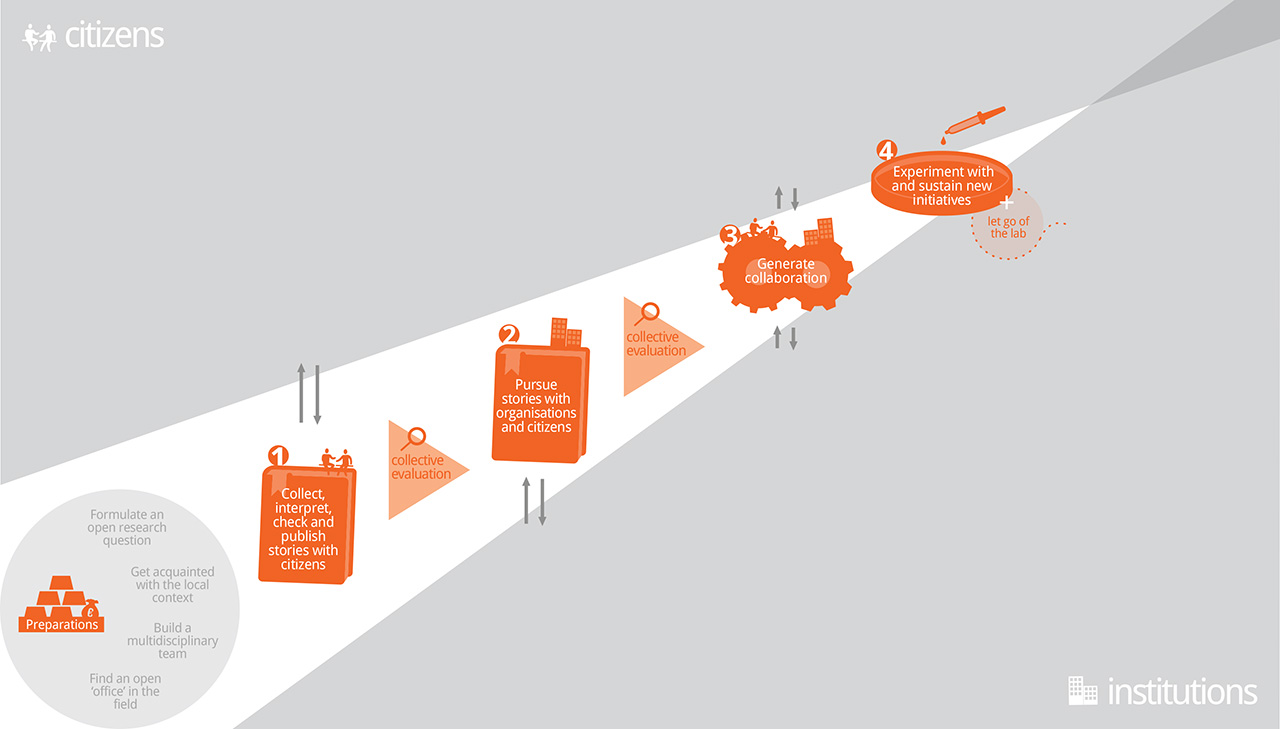
Feed Forward methodology as developed by Kennisland
Endorsements
Read endorsements from“Kennisland goes beyond the hype of social innovation labs to demonstrate how this new way of making policy can be inclusive, participatory and improve citizens’ daily realities.” – Marco Daglio, OECD Jorrit de Jong (Harvard University, USA), Marco Daglio (OECD, France), Josh Harvey (Unicef, Kosovo), Geoff Mulgan (Nesta, UK) and Ada Wong (The Good Lab, Hong Kong) – click image to view full size:
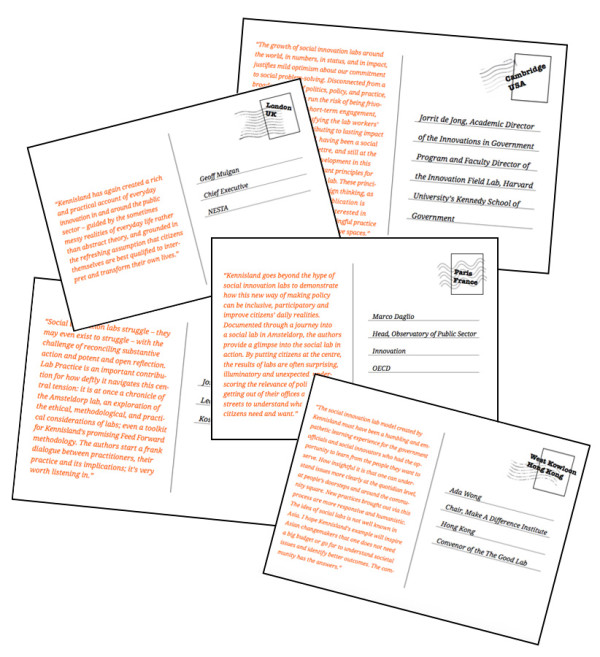
Read endorsements from all over the world: Harvard University, OECD, Unicef, Nesta, the Good Lab Hongkong. Click to read the endorsements!
